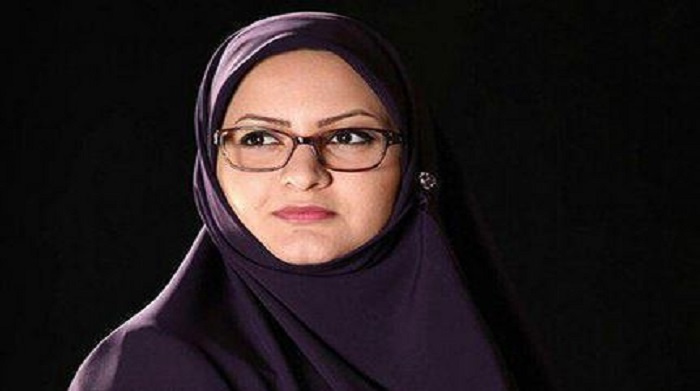The Curious Case of Minoo Khaleqi

Iran’s Guardian Council and the Interior Ministry have differences over a controversial case of post-election disqualification that has repeatedly hit the headlines after a fortnight of New Year holidays in Iran.
Rumors started to make the rounds on the last day of the last Persian calendar year that the Guardian Council had disqualified Minoo Khaleqi, a recently elected MP who came third in Isfahan during the election. The unprecedented move was interpreted as revenge by the principlists and a warning to reformists who had made it to the parliament. A few days later, Interior Ministry officials said the Guardian Council had not disqualified her, but invalidated her approximately 200 thousand ballots won. Asked about the reason, they would say the Council had not disclosed anything to the ministry. The Guardian Council later stated that the documentations regarding the disqualification had been announced to the candidate.
However, one of Khaleqi’s close associates dismissed such claims while speaking with Vaghaye Daily for an interview published on Monday. “The reasons for Ms. Khaleqi’s disqualification have not been announced in writing or verbally,” the unnamed relative said. According to the reports, the main reason behind the disqualification is a collection of photos sent to the Council’s supervisory panel while the relative says the photos are mostly personal ones that have likely been obtained by hacking her cellphone.
As another informed source told Vaghaye, the supervisory panel had also disqualified the thirty-year-old reformist before the election, but her well-known father and his intimate friend, Ahmad Salek, an incumbent Isfahan representative in Majlis, mediated to convince the Council to endorse her qualification. However, this was the beginning of a long story. The informed source said a GC representative called to invite Khaleqi to provide some explanations, two days before the beginning of the official campaigns. As she consulted with friends, she was told the Council had previously been convinced to disqualify her, but endorsed her after correspondences and negotiations. The call was a sign that they regretted their decision. By this account of the story, when she visited the GC officials, she was given low-quality photos and asked if it was her. She denied it and left the office, mentally disturbed. According to the informed source who spoke with Vaghaye, one of the main documents in her disqualification was a photo taken during an academic meeting at a university in China. “It was an all-female gathering and one of the photos was printed in a bulletin of the university,” said the source. An individual who pretended to be a like-minded friend of Khaleqi’s and among the very few people who knew about the China episode disclosed some information because of her own disqualification, according to the source. What seems more provocative for the all-principlist Guardian Council however is a conspiracy theory formed around the unpermitted publication of Khaleqi’s photo on My Stealthy Freedom, a Facebook page administered by a dissident Iranian journalist. Khaleqi’s fits of anxiety and her refusal to provide explanations to media has also added to the mysterious nature of the case.
Regardless of the reason for the disqualification, the GC’s overt heretical manipulation of its legal authorities, formerly a joke but now a reality, is for many the equivalent of disqualifying 200 thousand voters, who are already losing hope to participate in the runoff scheduled later this month. The reformist coordination council of Isfahan province rose in defense of Khaleqi and condemned the violation of her privacy. The director of the reformist council, Ali Nekouei, told Iranian Labor News Agency (ILNA) that the individual was responsible in cases like this but the council would pursue the rights of those it invited to ballot boxes. The council has reportedly submitted two separate letters to President Hassan Rouhani, asking him to pursue the issue. Many legal experts, including Bahman Keshavarz, Seyyed Mohammad Hashemi and Mohammad-Saleh Nikbakht, have expressed concern over the heresy, as they believe the Guardian Council does not have the right to disqualify an individual after the election. Others call the move legal in the light of the Council’s ‘approbative supervision’. Prominent MP Ali Motahhari has also called for the relegation of the case to the Majlis during the evaluation of the new members’ credentials. Iran’s Interior Minister Abdolreza Rahmani-Fazli has told reporters that the administration’s spokesman, Mohammad-Bagher Nobakht, will illuminate the issue in near future. The infighting over the case is expected to continue for several days, but it is very unlikely that the administration could overcome the orthodox Council.

